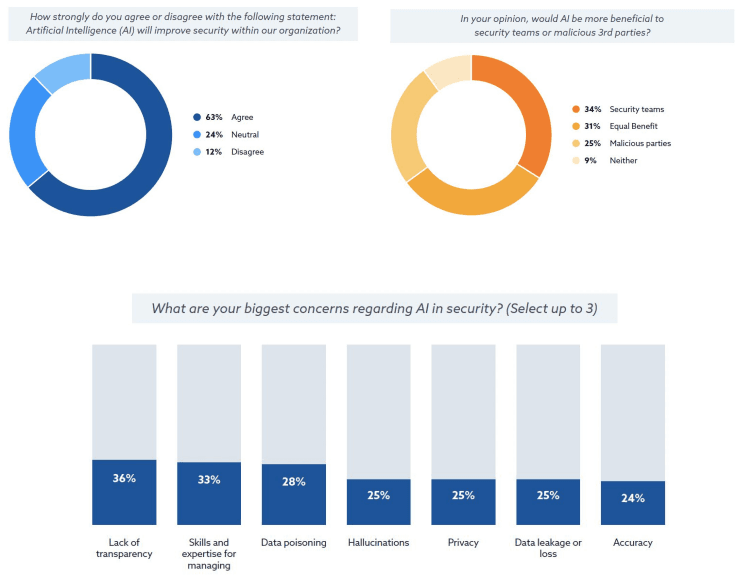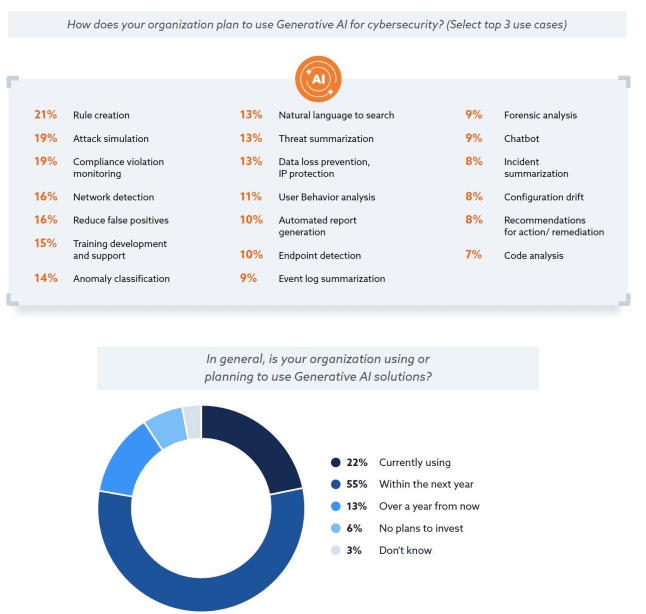
The rise of AI in Cybersecurity - friend or foe?
4/21/2024
The digital battlefield is changing. Artificial intelligence (AI) is emerging as a powerful weapon in the fight against cybercrime, offering exciting possibilities but also posing new challenges. At Squalio, we understand the importance of staying ahead of the curve. That's why we wanted to share some key takeaways from a recent survey on AI in cybersecurity.

Cautious optimism a double-edged sword

There's a sense of cautious optimism among security professionals. 63% believe AI can significantly improve threat detection and response. However, there's also a healthy dose of skepticism:
- 34% see AI as a net positive for security teams.
- 31% believe it offers equal advantages to both attackers and defenders.
- 25% worry AI could even give malicious actors the upper hand.
These concerns highlight the importance of addressing data quality issues, the "black box" nature of some AI systems, and the need to develop a skilled workforce that can manage and understand this powerful technology.
AI - empowering security professionals, not replacing them
The good news? Most security professionals see AI as a tool to enhance their skills (30%) and support their roles (28%). Only 12% fear being completely replaced by AI.
Imagine AI taking care of the mundane tasks, freeing up security professionals to focus on strategic initiatives and complex investigations. However, it's crucial to strike a balance. While AI automates tasks, human expertise remains vital for effective security.
The C-suite vs. the frontlines
A gap in AI awareness
The survey revealed a significant gap in AI awareness between leadership and staff. Here's a breakdown:
- 52% of C-suite executives report being very familiar with AI, compared to just 11% of staff.
- Similarly, 51% of C-levels have a clear understanding of AI use cases, compared to only 14% of staff.
This gap highlights the need for improved education and communication to ensure everyone in the organization is on the same page when it comes to AI adoption in cybersecurity.
2024 the year of Generative AI in Cybersecurity

The survey suggests 2024 will be a pivotal year for AI implementation. Here's what to expect:
- More than half (55%) of organizations plan to implement generative AI solutions, which can create new data or content.
- Leading use cases include rule creation (21%), attack simulation (19%), and compliance violation detection (19%).
- The biggest hurdle? The ever-present skills gap and staff shortages, reported by 33% of respondents.
The road ahead
Balancing innovation with responsibility
AI holds immense potential for cybersecurity, but responsible implementation is key. Organizations must address skill gaps, ensure data transparency, and develop a comprehensive framework for secure AI use. By embracing AI while acknowledging its challenges, we can build a more resilient future for our digital defenses.
Want to dive deeper? Read the full survey report available here.



